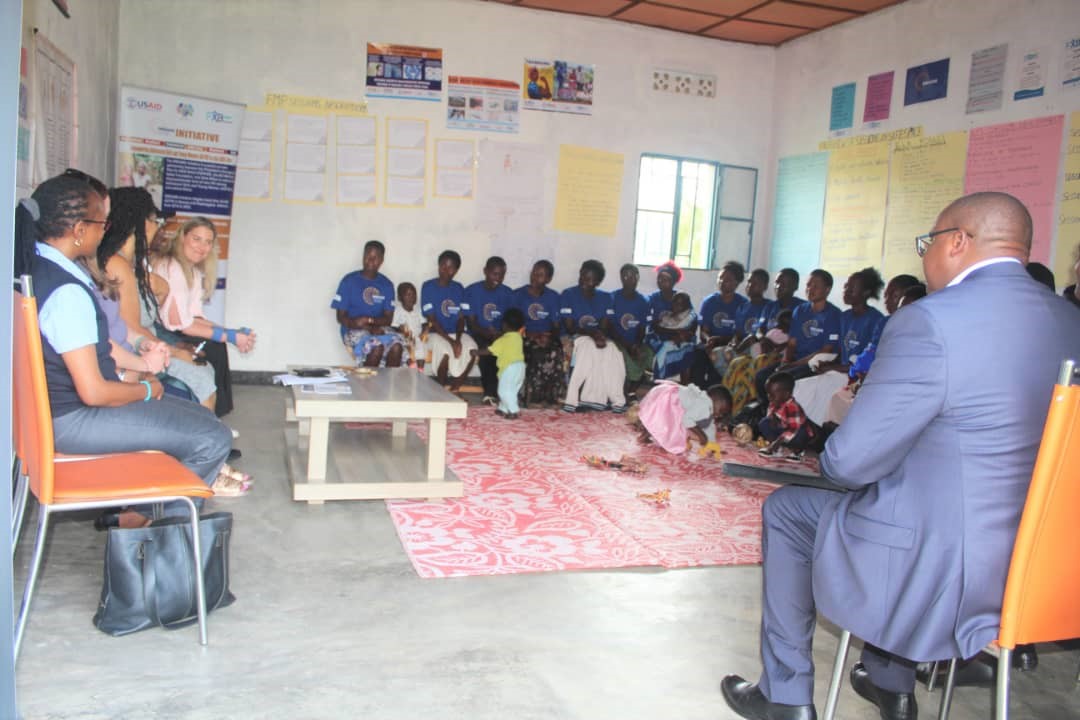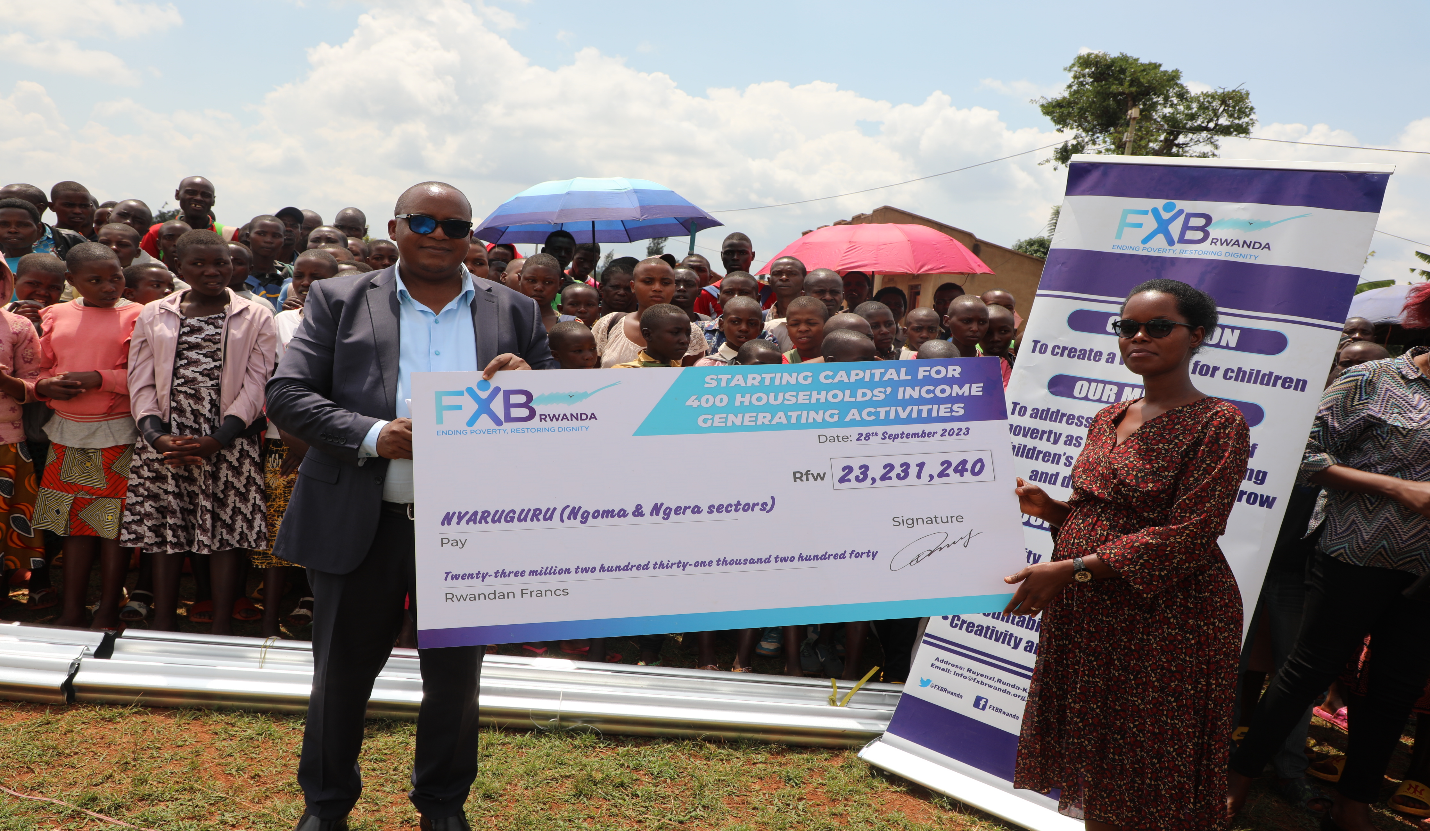On 30 November 2022, Chargé d’Affaires of the US Embassy in Rwanda Deb MacLean, PEPFAR Coordinator, and staff from USAIDRwanda visited DREAMS program interventions implemented by FXB Rwanda in Nyanza district, Southern province of Rwanda. The guests discussed with Adolescent Girls and Young Women in DREAMS safe spaces and parents attending Family Matter!Program.
Family Matter!Program facilitator explained to the guests how the sessions are delivered and received testimonies from the participants about how the program changed their lives.‘Before the program, I could not talk to my girl about her sexual reproductive health. I could not care about her behavior, or where she was,,,I thought it was only my wife’s responsibility. After attending these sessions, I became aware that it is my responsibility too and started behaving in that accordance’, testified one father parent who attends Family Matter! Program session.
The visited beneficiaries at the safe space, who were mainly teen mothers, gave testimonies on how the platform has impacted their lives as they acquire knowledge and skills on preventing themselves from HIV infection, STIs and unwanted pregnancies.
The guests commended the DREAMS program’s impacts and urged the beneficiaries to play their role in program sustainability as well as transfer the gained knowledge to the rest of their counterparts.
Since 2018, the President’s Emergency Plan for Aids Relief (PEPFAR) through USAID Rwanda has been supporting FXB Rwanda to implement the DREAMS (Determined, Resilient, Empowered, AIDS-free, Mentored and Safe) program in Nyanza and Rwamagana districts. Aiming at reducing the disproportionate level of new HIV infections among Adolescent Girls and Young Women (AGYW) aged 10-24, the program provided AGYW with a standardized package of HIV prevention interventions both at community and clinical levels.
In addition, the program delivers evidence-based HIV prevention approaches that go beyond the health sector to address the roots causes that increase AGYW’s HIV risks; including poverty, gender inequality, positive parenting care, sexual violence, and a lack of education






Leave a Comment